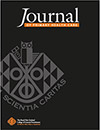HC24078 Full Text | HC24078PDF (652 KB) Open Access Article

Journal of Primary Health Care
Volume 16 Number 2 2024
HC24063 Full Text | HC24063PDF (652 KB) Open Access Article
What is already known: Aotearoa New Zealand prioritises the pursuit of health care equity as a central objective. The existence of patient co-payments in primary care poses obstacles to achieving this goal. To address these challenges, the government has implemented various schemes aimed at alleviating them. What this study adds: The sociodemographic characteristics of people in the areas where general practices are located are related to the amount charged for an appointment with a general practitioner. The strongest relationships are seen across ethnicity and socioeconomic deprivation levels with lower fees being associated with higher proportions of Māori and Pacific peoples in that area and among people who are more socioeconomically deprived. The Very-Low-Cost-Access scheme appears to reduce these associations indicating that general practices operating under the scheme appear to reach groups with greater need.
HC23157 Abstract | HC23157 Full Text | HC23157PDF (1.1 MB) Open Access Article
What is already known: In 2022/23, 13% of the population aged 15 and over did not have a GP consultation when needed because of cost; this percentage differs by age group, sex, ethnicity and the New Zealand Deprivation Index. What this study adds: This paper explores the sociodemographic differences in those with met and unmet need for a GP consultation because of cost, their subsequent admissions to hospital and the characteristics of those admissions.
HC24018 Abstract | HC24018 Full Text | HC24018PDF (725 KB) | HC24018Supplementary Material (1.4 MB) Open Access Article
What is already known: Around 5% of the population were not enrolled in a general practice in 2023. This has been found to differ by age, ethnicity and deprivation; with Māori and Pacific peoples (compared to non-Māori/non-Pacific people), young people and those who live in more socioeconomically deprived areas having lower enrolment rates. What this study adds: Those not enrolled generally use fewer health services in general practice than the enrolled. They are less likely to use and take longer to access an emergency department compared to the enrolled but are more likely to use it for conditions that could be treated at a general practice.
HC24023 Abstract | HC24023 Full Text | HC24023PDF (741 KB) | HC24023Supplementary Material (1.4 MB) Open Access Article
What is already known: Community-based primary care physiotherapy is provided in Aotearoa New Zealand through a private practice, fee-for-service model. The impact of this model on patient care, physiotherapists, and professional behaviour is unknown. What this study adds: This exploratory study suggests that competition can dominate communication and collaboration in private practice physiotherapy. Competitive business models and an aversion to scrutiny may reduce collegial interaction and professional behaviour.
HC23150 Abstract | HC23150 Full Text | HC23150PDF (721 KB) | HC23150Supplementary Material (877 KB) Open Access Article
What is already known: Community-based attachments (CBAs) are mandatory in NZ for junior doctors in their first 2 years of study. Some research indicates that CBAs are a positive experience for the practice and the junior doctors. What this study adds: An estimated average cost for hosting PGY2s in general practice was $NZ4907 (range $890–$9183) per placement before consideration of space costs, over and above current funding provided by Health New Zealand |Te Whatu Ora (TWO) Health Workforce Directorate. The small business model of general practice is in tension with providing a positive experience for the PGY2s in a new learning environment, and better communication and cooperation between practices and TWO employing hospitals are needed.
HC23116 Abstract | HC23116 Full Text | HC23116PDF (774 KB) | HC23116Supplementary Material (195 KB) Open Access Article
What is already known: The Physiotherapy Board has recently introduced an Advanced Physiotherapy Practitioner scope of practice. Little is known about how stakeholders perceive this scope of practice. What this study adds: Primary health care stakeholders are broadly supportive of the Advanced Physiotherapy Practitioner scope of practice. It may improve patient pathways, health care delivery and health outcomes for those with musculoskeletal conditions, and the clinical career pathway for physiotherapists.
HC24029 Abstract | HC24029 Full Text | HC24029PDF (735 KB) | HC24029Supplementary Material (403 KB) Open Access Article
HC23171He Aroka Urutā. Rural health provider perspectives of the COVID-19 vaccination rollout in rural Aotearoa New Zealand with a focus on Māori and Pasifika communities: a qualitative study
 , Lynne Clay
, Lynne Clay  , Rawiri Keenan
, Rawiri Keenan  , Jane Taafaki, Sue Crengle, Garry Nixon, Kiri Fortune and Tim Stokes
, Jane Taafaki, Sue Crengle, Garry Nixon, Kiri Fortune and Tim Stokes 
Disparities between rural and urban COVID-19 vaccination coverage both in NZ and globally have been demonstrated. New Zealand rural health provider perspectives of the COVID-19 vaccination rollout provide insight into factors contributing to the urban–rural COVID-19 vaccination disparity. Findings emphasise the relevance of context in delivering health initiatives rurally, which should be geographically tailored, culturally anchored and locally driven.
HC23171 Abstract | HC23171 Full Text | HC23171PDF (765 KB) Open Access Article
What we already know: Culturally unsafe care negatively impacts health outcomes and further health care utilisation for Māori. Inequities exist in access to and quality of pre-hospital cardiovascular care for Māori. The reasons for such inequities in pre-hospital care are not well understood. What this study adds: This study provides an insight into pre-hospital care from the perspectives of Māori and whānau who utilised the ambulance service for chest pain or cardiac symptoms. A culturally appropriate research approach, using Kaupapa Māori Research, identified interpersonal interactions between Māori and paramedics and systemic and structural barriers as key drivers of poor experiences while highlighting areas where improvements could occur.
HC24010 Abstract | HC24010 Full Text | HC24010PDF (790 KB) Open Access Article
What is already known: The first university-based pharmacy clinic in Australasia provides a unique setting for pharmacy care and education in New Zealand. Little is understood about the experiences of healthcare providers who have referred their patient for a consultation at the Clinic or how well the service is meeting their needs. What this study adds: Healthcare providers valued the opportunities for interprofessional collaborative practice and continuing professional education presented by the Clinic. Perceived benefits to patients and the broader healthcare system support the rationale for ongoing service development.
HC24022 Abstract | HC24022 Full Text | HC24022PDF (717 KB) Open Access Article
HC24026Implementing new forms of collaboration and participation in primary health care: leveraging past learnings to inform future initiatives
 , Claire O’Loughlin, Tim Tenbensel
, Claire O’Loughlin, Tim Tenbensel  , Pushkar Silwal, Marianna Churchward, Lynne Russell and Jacqueline Cumming
, Pushkar Silwal, Marianna Churchward, Lynne Russell and Jacqueline Cumming
What is already known: Primary health care is expected to be a part of a wide diversity of activity providing a more seamless and coordinated patient centred experience. Shifting general practices to take on more care coordination roles can be problematic. Some providers have a starting philosophy as well as the resources and capacity to be very good at this, while others need substantial support to make those transitions. What this study adds: Providing explanation for what has caused variable progress helps identify the type of support that has the most chance of success. Familiar themes of trust and power are examined in different contexts, alongside insights into what helps complex collaborative initiatives gain traction.
HC24026 Abstract | HC24026 Full Text | HC24026PDF (971 KB) Open Access Article
What is known about the topic: Mental health challenges pose a significant public health risk. There is a need to build workforce capacity to address the mental health needs of children and youth in order to promote positive outcomes in later life. What this study adds: All sectors must take responsibility for promoting mental health in children and youth. This participatory action research study presents communities of practice as providing a sustainable mechanism by which international evidence can be received, transformed and translated into practice.
HC23142 Abstract | HC23142 Full Text | HC23142PDF (688 KB) Open Access Article
HC23134Exploring the role of physician associates in Aotearoa New Zealand primary health care
What is already known: In various countries, health care providers aim to diversify the health workforce by introducing new clinical roles such as physician associates/assistants (PAs) to tackle ongoing workforce shortages. Numerous studies highlight PAs as cost-effective contributors who enhance access to safe and effective care. Despite these benefits, the integration of PAs into health care systems has encountered considerable scrutiny from both the public and medical professionals. What this study adds: The Ministry of Health has recently proposed the regulation of the PA profession, allowing foreign-trained PAs to take on clinical responsibilities in both primary and secondary care settings. This article examines the feasibility and implications of introducing PAs into New Zealand’s primary care sector, particularly within the context of general practice.
HC23134 Abstract | HC23134 Full Text | HC23134PDF (682 KB) Open Access Article
HC23178 Full Text | HC23178PDF (673 KB) Open Access Article



